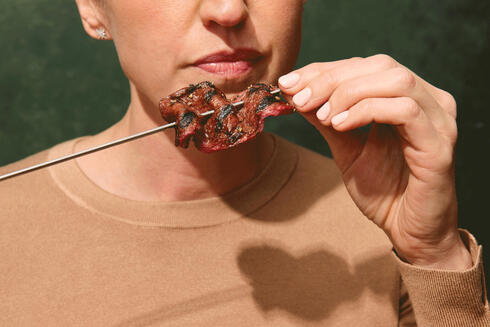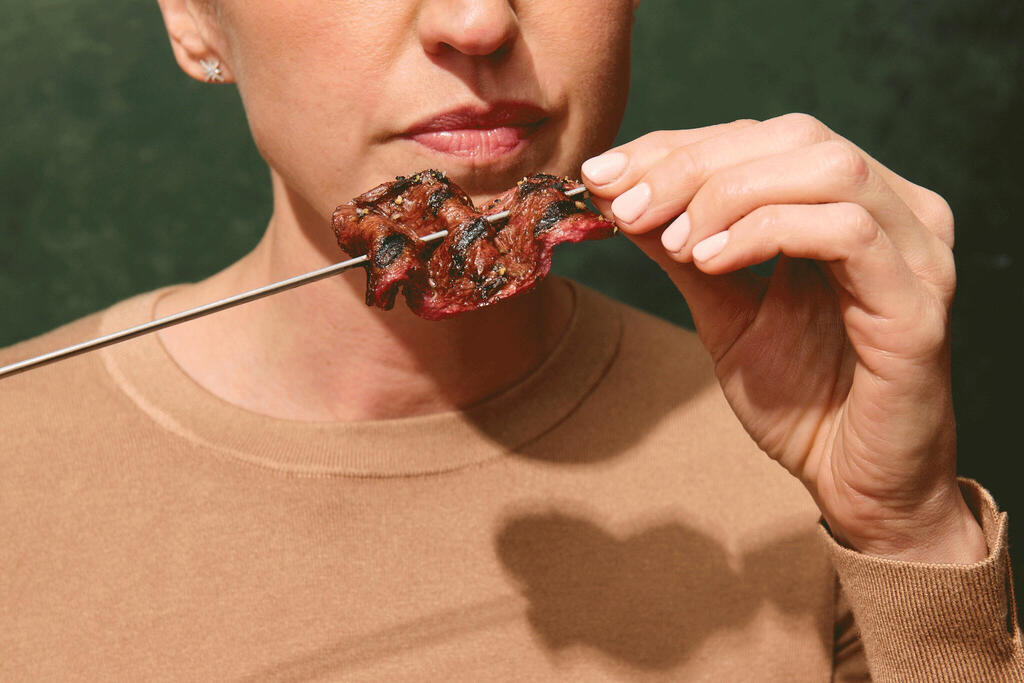
Cultivated meat startup Aleph Farms gets historic approval to sell lab-grown steaks in Israel
The Israeli startup, which has raised $140 million to date, collects sample cells from a living animal and then grows more in a cultivator that mimics conditions in the animal's body
Israeli foodtech startup Aleph Farms said on Wednesday it received regulatory approval in Israel to sell steak grown from cow cells in a process that effectively takes the animal itself out of the equation.
Cultivated meat, grown from animal cells in a lab or manufacturing plant, has been garnering interest globally as a way to sidestep the environmental impact of the meat industry and address concerns over animal welfare.
Akeph Farms is the first cultivated meat company in Israel to receive the approval of the Ministry of Health to market its product and overall the third company in the world to garner such an approval, when so far only cultured chicken products have been approved, in Singapore and the U.S.
Although this is a significant step, it is a pre-marketing approval, and the company will additionally be required to complete a licensing procedure for its production line before it can sell its products in Israel.
The pre-marketing approval given to Aleph Farms is also a significant achievement for Israel, which is now entering a limited forum of countries whose Ministry of Health has determined that a cultivated meat product is safe for consumption, while dozens of other companies' products are waiting on the desks of regulators around the world. Aleph Farms estimates that the company will fully complete the regulatory procedure within just a few months.
"This regulatory milestone, the first of its kind worldwide, reflects a comprehensive assessment of crucial factors, from toxicology and allergens to nutritional composition, microbiological safety, and chemical safety throughout the entire production process," said Ziva Hamama, Food Risk Management Department Director at the Health Ministry.
She said there were talks with other companies as well to bring more products to market. Israel is a global leader in the sector, with groups also pioneering alternatives to traditional fish and chicken products.
Aleph Farms has raised around $140 million since its founding in 2017 and has actor Leonardo DiCaprio as an advisory board member.
A year ago, Israel's chief rabbinate gave the company its approval, having determined that the cultivated steaks are indeed kosher.
The company said it is following final instructions from the health ministry for consumer labeling for the product, and is obtaining a final inspection of its pilot production facility in central Israel.
Within a few months it hopes to start selling to restaurants, and eventually for food service and retail.
"Aleph’s regulatory team is working in similar fashion with authorities in numerous markets around the world in order to ensure compliance with respective safety requirements," said Yifat Gavriel, the company's chief of regulatory affairs, quality assurance and product safety.
Aleph Farms says it collects sample cells from a living animal and then grows more in a cultivator that mimics conditions in the animal's body. They are mixed with plant proteins from soy and wheat, but the product is different from popular plant-based alternatives that do not have animal origins.
"Our launch will involve small quantities initially, given our current small-scale production," Aleph Farms CEO Didier Toubia told Calcalist. “We anticipate operating at a loss for the first two or three marketing years. Our Israeli pilot aims to achieve several tons per year by year-end, with the long-term goal of cost reduction and profitability within a few years."
The current $1.4 trillion animal-based meat industry poses significant environmental challenges, contributing to 12% of greenhouse gas emissions linked to climate change. Toubia stresses the importance of this approval for food security, stating, "Food systems globally are fragile, and as we face population growth and climate change challenges, collaboration is crucial. Dependence on food imports is a major threat to security."
Aleph Farms is also seeking regulatory approval in England, Switzerland, the U.S., and Singapore, aiming to gradually expand accessibility. Toubia envisions reaching $1 billion in sales, constituting 0.01% of the global meat market within a decade, emphasizing international partnerships for shared economic initiatives.
Reuters contributed to this report














